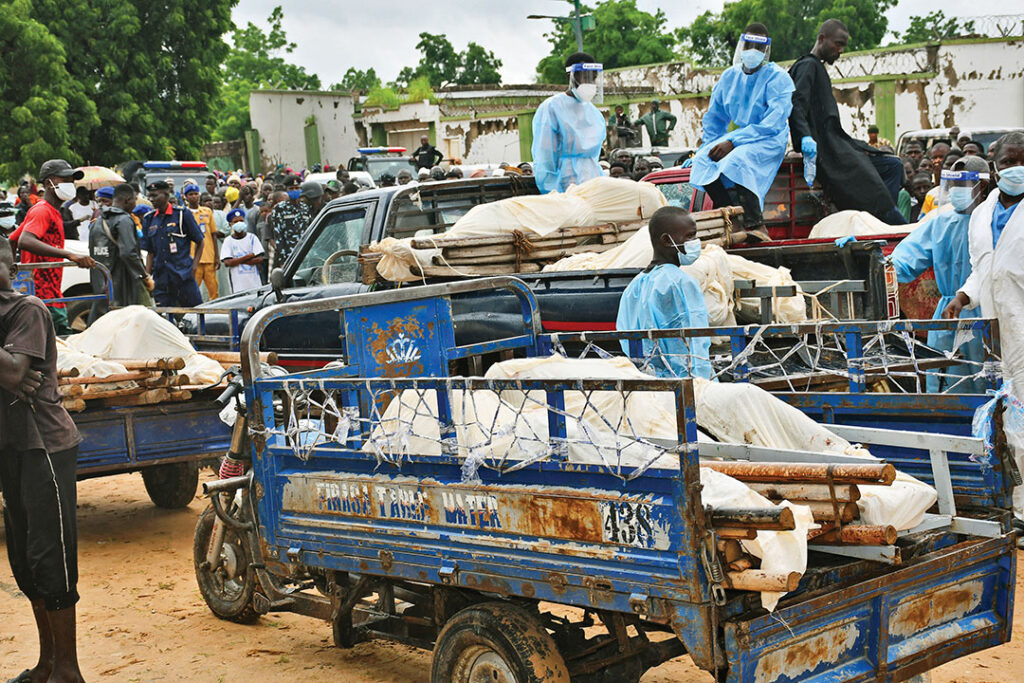Amina J. Mohammed of Nigeria is deputy secretary-general of the United Nations and chair of the U.N. Sustainable Development Group. She spoke on April 22, 2024, at the High-Level African Counter-Terrorism Meeting in Abuja, Nigeria. The theme was “Strengthening Regional Cooperation and Institution Building to Address the Evolving Threat of Terrorism in Africa.” Her comments have been edited for space and clarity.
Terrorism continues to pose a significant threat to global peace, stability and sustainable development.
Deaths from terrorism in the world rose to 8,352 in 2023, a 22% increase from the prior year and the highest level since 2017. The epicenter of terrorism has shifted from the Middle East and North Africa into Sub-Saharan Africa, concentrated largely in the Sahel.
The situation in Africa is dire, with some of the most violent terrorist groups operating in the Sahel. The region now accounts for almost half of all deaths from terrorism globally.
It can be said that terrorists are not born but created in environments of social exclusion, inequality and the relegation of human rights.
Allow me to share some reflections on how we can strengthen our response to terrorism:
First, we must address the root causes that lead to terrorism in the first place — absence of development with people at the center of policymaking. Terrorists find a welcome home with deeply disillusioned, excluded and desperate people. Farmer-herder crises are a tragic symptom. We must formulate responses that address those conditions.
In doing so, we must pay attention to our women and girls, who bear the greatest impact of insecurity; the victims of terrorism who deserve our solidarity and who have a right to remedy and reparations; and to our youth and future generations. With our young people becoming the largest cohort of global demography, we must invest in their capabilities and aspirations.
Second, we need to work to rebuild the social contract across the region. The social contract — the bond between people and the authorities that govern them — has been frayed by decades of underinvestment, crises and corruption.
Rebuilding our social contract is essential for recovery. It means building strong democratic institutions and promoting people-centered governance, all grounded in human rights, and guaranteed access to basic services and inclusive development for all people.
We need to increase information sharing and collaboration among governments and security actors across our borders. They deliver better for all their citizens when they pool resources. This is vital and critical to rebuilding our defenses against terrorism.
An issue that is often overlooked is the pain and suffering victims undergo during and after the carnage. Providing mental health and psychosocial support to the victims and survivors is essential to healing and overcoming the trauma, pain and suffering.
I recall the harrowing tale of the woman tragically fleeing from a Boko Haram attack with her baby. In her desperation, she made a choice no woman should ever have to make. She threw her baby into the river, hoping against hope that someone, somewhere, will offer refuge and safety for her innocent child. These scars are not ones that heal easily.
Therefore, in our efforts to provide mental health support, we must involve our community, and religious and traditional leaders, who play a vital role in creating safe spaces and fostering recovery.
Together, we can build a safer and more secure future for all Africans and the world.

